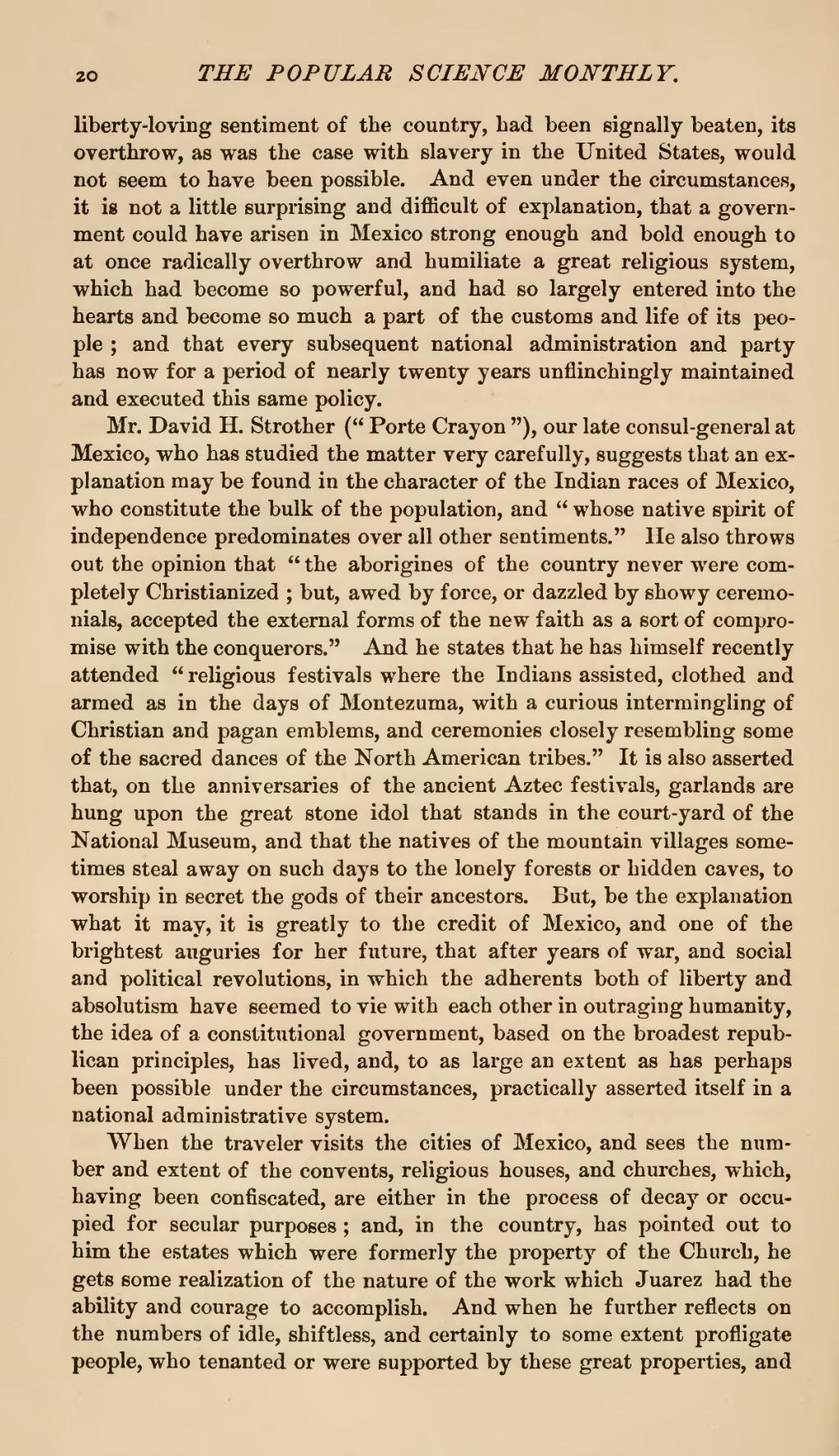liberty-loving sentiment of the country, bad been signally beaten, its overthrow, as was the case with slavery in the United States, would not seem to have been possible. And even under the circumstances, it is not a little surprising and difficult of explanation, that a government could have arisen in Mexico strong enough and bold enough to at once radically overthrow and humiliate a great religious system, which had become so powerful, and had so largely entered into the hearts and become so much a part of the customs and life of its people; and that every subsequent national administration and party has now for a period of nearly twenty years unflinchingly maintained and executed this same policy.
Mr. David H. Strother ("Porte Crayon"), our late consul-general at Mexico, who has studied the matter very carefully, suggests that an explanation may be found in the character of the Indian races of Mexico, who constitute the bulk of the population, and "whose native spirit of independence predominates over all other sentiments." He also throws out the opinion that "the aborigines of the country never were completely Christianized; but, awed by force, or dazzled by showy ceremonials, accepted the external forms of the new faith as a sort of compromise with the conquerors." And he states that he has himself recently attended "religious festivals where the Indians assisted, clothed and armed as in the days of Montezuma, with a curious intermingling of Christian and pagan emblems, and ceremonies closely resembling some of the sacred dances of the North American tribes." It is also asserted that, on the anniversaries of the ancient Aztec festivals, garlands are hung upon the great stone idol that stands in the court-yard of the National Museum, and that the natives of the mountain villages sometimes steal away on such days to the lonely forests or hidden caves, to worship in secret the gods of their ancestors. But, be the explanation what it may, it is greatly to the credit of Mexico, and one of the brightest auguries for her future, that after years of war, and social and political revolutions, in which the adherents both of liberty and absolutism have seemed to vie with each other in outraging humanity, the idea of a constitutional government, based on the broadest republican principles, has lived, and, to as large an extent as has perhaps been possible under the circumstances, practically asserted itself in a national administrative system.
When the traveler visits the cities of Mexico, and sees the number and extent of the convents, religious houses, and churches, which, having been confiscated, are either in the process of decay or occupied for secular purposes; and, in the country, has pointed out to him the estates which were formerly the property of the Church, he gets some realization of the nature of the work which Juarez had the ability and courage to accomplish. And when he further reflects on the numbers of idle, shiftless, and certainly to some extent profligate people, who tenanted or were supported by these great properties, and
